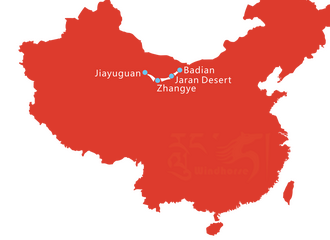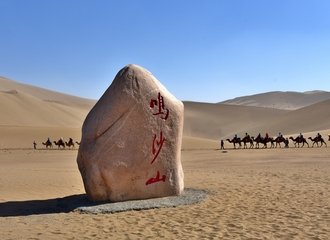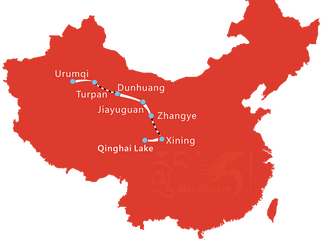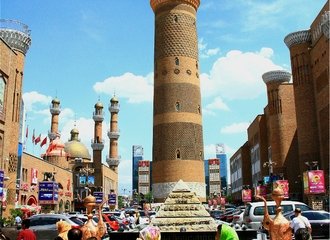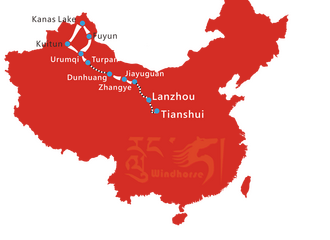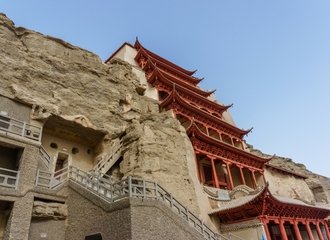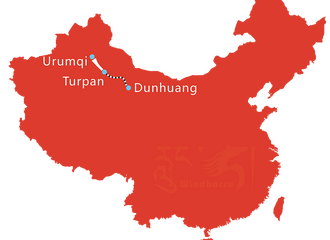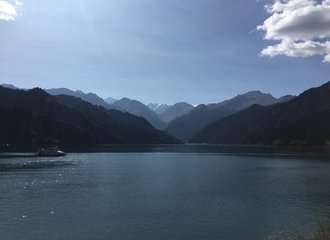Health and insurance
Before you go
Pack medications in their original, clearly labelled, containers. A signed and dated letter from your physician describing your medical conditions and medications (using generic names) is also a good idea. If carrying syringes or needles, be sure to have a physician's letter documenting their medical necessity. If you have a heart condition, bring a copy of your ECG taken just prior to travelling.
If you take any regular medication bring double your needs in case of loss or theft. In China you can buy many medications over the counter without a doctor's prescription, but it can be difficult to find some of the newer drugs, particularly the latest antidepressant drugs, blood pressure medications and contraceptive methods. In general it is not advised to buy medications locally without a doctor's advice.
Make sure you get your teeth checked before you travel, and if you wear glasses take a spare pair and your prescription.
Medical checklist
Recommended items for a personal medical kit:
- Antibacterial cream, eg Muciprocin
- Antibiotics for skin infections, eg Amoxicillin/Clavulanate or Cephalexin
- Antibiotics for diarrhoea, including Norfloxacin, Ciprofloxacin, or Azithromycin for bacterial diarrhoea; or Tinidazole for giardia or amoebic dysentery.
- Antifungal cream, eg Clotrimazole
- Antihistamine - there are many options, eg Cetrizine for daytime and Promethazine for night-time
- Antiseptic, eg Betadine
- Anti-spasmodic for stomach cramps, eg Buscopan
- Decongestant, eg Pseudoephedrine
- DEET-based insect repellent
- Diamox if going to high altitudes
- An oral rehydration solution (eg Gastrolyte) for diarrhoea, diarrhoea 'stopper' (eg Loperamide) and anti-nausea medication (eg Prochlorperazine)
- Elastoplasts, bandages, gauze, thermometer (but not mercury), sterile needles and syringes, safety pins and tweezers
- Ibuprofen or another anti-inflammatory
- Indigestion tablets, such as Quick Eze or Mylanta
- Iodine tablets (unless you are pregnant or have a thyroid problem) to purify water
- Laxative, eg Coloxyl
- Paracetamol
- Permethrin to impregnate clothing and mosquito nets
- Steroid cream for allergic/itchy rashes, eg 1% to 2% hydrocortisone
- Sunscreen and hat
- Thrush (vaginal yeast infection) treatment, eg Clotrimazole pessaries or Diflucan tablet
- Ural or equivalent if prone to urinary infections
While you're there
Availability of health care
There are now a number of good clinics in major cities catering to travellers. Although they are usually more expensive than local facilities, you may feel more comfortable dealing with a Western-trained doctor who speaks your language. These clinics usually have a good understanding of the best local hospital facilities and close contacts with insurance companies should you need evacuation.
Self-treatment may be appropriate if your problem is minor (eg traveller's diarrhoea), you are carrying the relevant medication and you cannot attend a clinic. If you think you may have a serious disease, especially malaria, do not waste time - travel to the nearest quality facility to receive attention.
Buying medication over the counter in China is not recommended, as fake medications and poorly stored or out-of-date drugs are common.
To find the nearest reliable medical facility, contact your insurance company or your embassy.
Insurance
Even if you are fit and healthy, don't travel without health insurance - accidents do happen. Declare any existing medical conditions you have - the insurance company will check if your problem is pre-existing and will not cover you if it is undeclared. You may require extra cover for adventure activities such as rock climbing. If you're uninsured, emergency evacuation is expensive (bills of over USD100, 000 are not uncommon).
Make sure you keep all documentation related to any medical expenses you incur.


